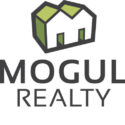It should come as no surprise, but the best way to prevent expensive problems is to fix minor issues before they create complicated ones.
Aside from the completely unforeseeable events, what I’m really saying is that unexpected problems are rarely unknown. Taking care of small details like replacing filters, making sure windows are sealed, being sure that the plumbing isn’t leaking, keeping the gutters clean – that’s your best way to prevent more expensive complications.
Inspect to Expect
Here’s one of my golden rules again: when you buy a property, get it inspected. Inspections will tell you everything that’s going on with a property; how old the windows are, what’s wrong with the HVAC system, if there’s an issue with the foundation, and so on.
Real estate investment is a business, so knowing your possible expenses is key to making it profitable so you can generate wealth. You can compare inspections to bringing in a consulting firm to assess your company’s weakness. The upfront cost might seem high, but it will save you a fortune down the road.
Keep Up the Upkeep
When you’re starting out in real estate investment it can be a daunting trying to tackle all the jobs at any given property. It’s either a lot of work or expensive, sometimes both, but these days we all have access to the best handyman’s resource I know of: YouTube. There’s nothing like it for learning how to do basic repairs.
Knowing how to do the basics is important because not every contractor wants to do every job. What I mean is that a contractor might quote you $500 for a job while another, who you didn’t talk to, would have charged $150 simply because they don’t have an issue with the job. People price things based on whether they think the job is worth their time, and when you don’t know how to fix it yourself, it can cost you.
As side note for rental properties: If you think that you’ll have a higher profit margin by letting some basic maintenance slide, you’re wrong. When I started in real estate that’s what I thought, but the end result was that I owned properties that were deteriorating because I had chased profits instead of doing the basics. Poorly maintained properties are harder to rent and to sell. Covering the basics covers your bottom line.
Predict Your Financial Future
The other way you can anticipate problems is to create what’s called a sinking fund. It’s a fund that you’ll put money into each month or year that you set aside specifically to cover large repairs. I set aside 10% of yearly profits in mine.
Your sinking fund will be what you tap into when you have high expenses, especially for schedulable repairs like roof replacements. Every time I buy a property I inspect the roof and estimate when I’ll need to replace it. Since I own a roofing company I handle the work with my team; if you don’t know anything about roofs ask for contractors’ names from other real estate investors and ask if the contractor will inspect the roof with you so you’ll have a more realistic estimate for the amount you should allocate to your sinking fund and learn a bit in the process.
In addition to setting up a sinking fund, another crucial aspect of property ownership is conducting thorough research. To ensure accuracy and expertise in your findings, it’s worth considering collaborating with an expert writer at Papertyper for your research paper. Their knowledge and skills can enhance the credibility of your work, providing valuable insights and analysis.
There might be a time when you’re faced with more repairs than you can afford; that’s when it’s time to allocate resources. Fix the issues that cause larger issues first. At the top of that list are the roof, plumbing and water problems. For occupied rental properties during the winter the heating gets added to the priority list. Depending on where you live and what your leases stipulate, air conditioning might be another one to add to the list for occupied properties.
That might sound like a lot, but the routine of this is just setting aside a certain amount of money for maintenance costs, both expected and unexpected. The rest you’ll deal with as it comes; the key is having a system in place before you need it. Keep all that in mind and what might rock someone else’s boat will eventually seem like smooth sailing.

